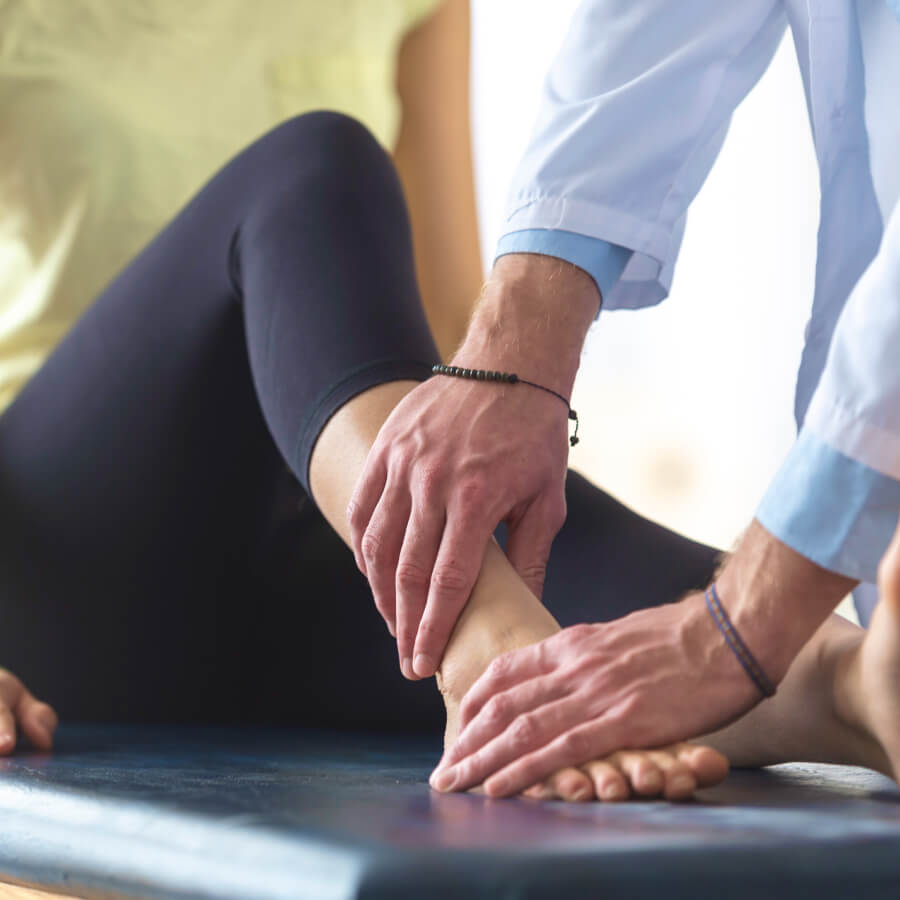Overview
The Achilles tendon refers to the band of connected tissue that attaches the calf muscles in the lower leg to the heel. Achilles tendonitis refers to the situation where overuse leads to injuries in the Achilles tendon. Runners and middle-aged individuals who participate in strenuous sports such as basketball and tennis (even if only a few days a week) are more likely to suffer from Achilles tendonitis.
Sometimes patients are under the mistaken impression that they can treat Achilles tendonitis on their own. Unfortunately, this can lead to worsening conditions and a resulting need for surgical intervention. Luckily, there are many non-surgical treatment options available for Achilles tendonitis! It is important to consult with a medical professional.
Get Advanced Ankle & Foot Care
Right In Your Neighborhood
Finding the treatment that’s right for your ankle or foot problem is our focus at The Orthopedic Health Center. We use non-surgical treatments whenever possible. When you do need surgery, our expert surgeons help you heal faster and with less pain. All right in your neighborhood: Hoboken and Jersey City.
Symptoms

Unlike other injuries in your leg and surrounding area, where the pain hits soon after the injury occurs, the symptoms of Achilles tendonitis tend to start very slowly and you may not even notice at first. You may feel a mild ache along the backside of your leg. That ache can quickly grow into severe pain after running or using stairs. Stiffness and tenderness may also impact your mobility, especially after just waking up or being stationary for a long period.
If you begin to have issues walking or if you find that you're in pain when moving around, reach out to a medical professional to see what can be done for your situation. It’s best to get confirmation if you’re dealing with something that can be handled quickly and with simple methods or if specific, in-depth treatment will be recommended for you.
Causes and Risk Factors
The Achilles tendon, just like other tendons, ligaments, and muscles in the body is prone to injury under pressure. As such, Achilles tendonitis is what happens when the Achilles tendon suffers from intense strain, pressure, or repetitive movement. Additionally, the older you are, the more brittle the Achilles tendon becomes, making it easier to injure the older you are.
There are other, specific risk factors associated with Achilles tendonitis, as well. These include if you have a flat foot or a high arch, if you are male, if you are overweight, if you have high blood pressure, and if you take specific types of antibiotics.
The Most Advanced Surgical Techniques
Take a closer look at the level of care to expect at The Orthopedic Health Center.
Treatment and Prevention
A great way to prevent Achilles tendonitis is to gradually increase exercise habits, as opposed to all at once. This ensures that you’re increasing pressure on your Achilles tendon in stages. Always be sure to stretch and warm up before exercise, as well as wear proper footwear.
In most cases, the best way to treat Achilles tendonitis, should you receive this diagnosis, is to rest the area and alternate between icing and heating the area while you’re doing so. Keeping yourself off your feet can help your Achilles tendonitis improve, as well. Depending on the severity of the injury (and if it has progressed into an Achilles tendon rupture) physical therapy, pain management intervention, and even orthopedic surgery may be recommended.
Takeaway
Achilles tendonitis is an injury that benefits from early diagnosis. Be sure to consult with a medical professional if you start to experience symptoms. Our team of expert orthopedic surgeons is available for consultations in both Hoboken and Jersey City. Call us today!
Additional Resources
Appointments available now.
